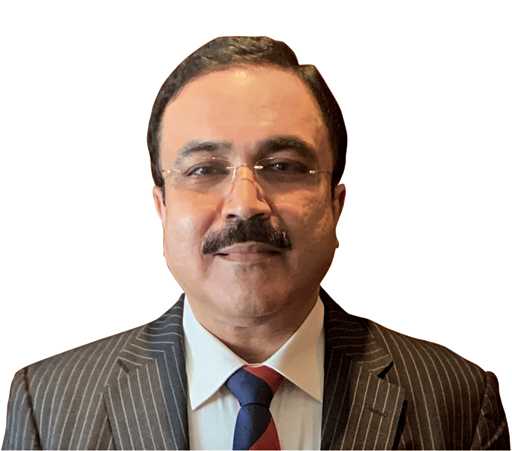With the worldwide devastation wrought by the Covid-19 pandemic, the entire scenario of human reproduction has undergone a sea change. Ironically enough, it has proved to be a blessing for many couples who, earlier, because of their gruelling work schedule, had no time for each other. With the lockdown being imposed, it has been observed that individuals are more inclined to think of starting a family. This has led to enhanced couple intimacy opportunities with the new work-from-home rule or furlough during lockdown.
Involuntary childlessness, however, has various psychological and psychosomatic effects, especially among women. The most common are distress, depression, anxiety, reduced self-esteem, somatic complaints, reduced libido and a sense of blame as well as guilt. The Covid-19 crisis has posed a serious challenge to the mental health of women due to the delay in initiating infertility treatment.
The pandemic led to the rampant cancellation of infertility treatment, especially IVF. World In Vitro Fertilisation (IVF) Day, observed on July 25, symbolises the essence and significance of this technique in infertility treatment. Since its inception in 1978, IVF had always been considered one of the last resorts of fertility treatment. It had been laborious, expensive and time-consuming with the achievement chart showing disappointingly low results. In the early years, it was done in very advanced cases of infertility and practised in only a handful of centres across the globe.
Over the decades, revolutionary changes have taken place, making it widely available throughout the world. Not only has the treatment been made simple, but also affordable by becoming accessible at only one-third of its previous cost. The modern concept of infertility treatment is popularly known as active management. Couples unable to conceive within a year of trying should visit a specialist for further investigations. This interval might be shorter if they have other fertility issues or the female partner is more than 35 years of age. A handful of tests are now performed instead of a battery of investigations, which used to be the norm earlier. With these tests, the cause of infertility is discerned and a decision is made on the subsequent treatment plan.
The initial step of infertility treatment for the majority is with medicines for ovulation induction (egg release) in the initial six months. If this does not work, the next step would then be to use gonadotrophin injections to induce ovulation, monitor treatment by serial ultrasonography and the couple is advised on the time of ovulation, when they should have sex.
The next procedure is Intrauterine Insemination (IUI), where the best quality sperm from the man is isolated and inserted into the uterus of his partner on the day of ovulation. Ovulation induction with gonadotrophin and IUI would take another six months. Thus, with one year gone, the remaining six to 12 months are left for assisted conception, or what is commonly known as IVF. In this procedure, the eggs are collected outside a woman’s body and merged with the sperm in a laboratory. In Vitro means outside the body, in a test-tube or a dish. Once fertilisation happens, the embryo is then implanted into the womb. The success, that is pregnancy rate with ovulation induction, is 10-15 per cent, that with IUI is 15-20 per cent, whereas with IVF it’s about 40-60 per cent per attempt, respectively.
Thus, whatever the treatment option, it can be completed within a maximum period of two years. Gone are those days when treatment of a couple comprised endless waits, visits to various clinics and a series of tests. Modern-day solution now involves laparoscopic or hysteroscopic surgeries to identify the problem without having to cut open the tummy. These procedures are done through a telescope and majority of them are on a day-care basis.
Coming back to the current pandemic scenario, even with the lockdown being eased in phases, there are still travel restrictions, absence of public transport and extended lockdown in few places. This has resulted in cancellation of treatment or its discontinuation in many cases. With the onset of the second wave, a number of people working in different cities and towns have left for their homes due to the closure of economic activity. Additionally, it has also dashed hopes of any recovery to the economic activity with schools and colleges remaining closed and businesses cutting jobs to stay afloat.
The overall situation has changed the core aspects of people’s lives in a unique and complex manner because economic recession is a major regulator for affecting the birth rates. Many have also been forced to abandon their plans for treatment for the fear of being infected.
As IVF is a time-sensitive treatment, every passing week is crucial for couples who are eager to become parents through this procedure. The treatment schedule being changed or postponed causes huge emotional dissatisfaction and uncertainty. Many have certain irreversible problems like poor sperm quality, blocked fallopian tubes, endometriosis, fibroids or polycystic ovaries. These require medical intervention without which these couples cannot conceive spontaneously, even if they stayed home and had timed intercourse.
IVF cycle is a planned preparation over a couple of months. Thus, in the current scenario, many infertile couples cannot start treatment and it is uncertain how long they have to wait. It is pertinent for a woman to know that her fertility starts to decline from 35 years of age. Thus, diminishing number of eggs is equivalent to their diminishing quality. While men continue to produce new sperms, the quality of the genes in their sperms also deteriorates with increasing age.
The all-important question which now remains to be answered is: Can Covid-19 deteriorate one’s reproductive function? The answer to this is a straight NO. It has been proven during the last 18 months of the pandemic that this infection, unlike other viruses like mumps, does not have any effect on the testicular or ovarian function. Neither does the sperm count reduce, nor does the ovarian function get suppressed.
It is true though that the Covid-19 virus makes one feel fatigued and lethargic, as a result of which the sexual potency of males might be compromised. Within the male organ, the blood supply helps in erection. Therefore, if some micro-clots are formed with Covid-19 infection, that might lead to erectile dysfunction. This, in turn, reduces the possibility of natural conception.
There is a common misconception prevailing among many that the Covid-19 vaccine can affect human reproduction. The truth is that none of the vaccines affect fertility. Rather, they encourage the body to create copies of the spike protein found on the coronavirus’s surface. This teaches the body’s immune system to fight the virus containing the specific spike protein on it.
Scaremongering is a definite cause for such misinterpretations. As regards the appropriate time to start infertility treatment after being vaccinated, the ideal time would be to wait for at least three days after the jab. The reason is a lot of people suffer from malaise or fever post-vaccination. So, if they start their treatment about the same time as they get vaccinated, the symptoms they experience could wrongly be taken to be the side effects of their treatment and not of vaccination. It could be started before vaccination, anytime in between their two doses or even three days after their jab.
The current scientific advancements has made it possible for us to give results in a large percentage of couples with infertility, provided they come and seek help on time. It is a rapidly evolving field and newer techniques provide us deeper insights into the causes of infertility and treat these causes more effectively. One needs to have faith in its active management and get their treatment completed within 18-24 months instead of prolonging it for years to come in the hope of a perfect time. The majority of these couples coming for treatment will actually succeed.
Unfortunately, there will be a small proportion of couples who may not be able to conceive regardless of technological advancements in medicine. It is imperative to let them into this information while they are still young so as to give them sufficient time to consider adoption, should they wish it.
As medical science continues to evolve, this treatment is expected to become better, cheaper and more widespread in the next decade and beyond. The term ‘infertility’ would gradually cease to be a major havoc-causing affair bringing about extreme social, mental and emotional turmoil.

Dr Gautam Khastgir MD, FRCS, FRCOG, FICOG, is the founder medical director of BIRTH and consultant in reproductive medicine and surgery










